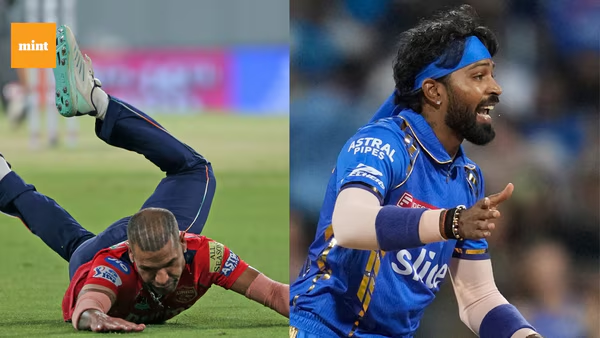
Four days have elapsed since England won the 2019 ICC Cricket World Cup at Lord’s by virtue of scoring more boundaries (26) than New Zealand (17) after the scores were tied at the end of the stipulated fifty overs per side and also at the end of the Super Over, but the majority of the fans have still not been able to shake off the excitement that the game offered at every turn and come to terms with the fact that New Zealand captain Kane Williamson couldn’t lay his hands on the trophy despite his team fighting neck-and-neck with England all the way through.
While some fans vented their disappointment on social media by claiming that the boundary count rule ‘’robbed’’ and ‘’deprived’’ New Zealand of the World Cup title, several international cricketers—both past and present—have opined that it’s time the ICC reconsidered some of its rules.
What did former New Zealand all-rounder Jacob Oram have to say on the subject? In a wide-ranging conversation with cricfit.com correspondent Ritam Basu, Oram, one of the finest all-rounders New Zealand has ever produced, shared his views about the boundary count rule, the game being more in favour of batsmen, the performance of the Kiwi seamers at the World Cup, what should be New Zealand’s approach towards Martin Guptill hereon et cetera.
Q: What were your feelings like during the closing stages of the England innings and during the Super Over?
Oram: [I was] Obviously nervous, but also just amazed at what was happening in front of me. All the twists and turns were surreal, and while I thought New Zealand had the game in their hold with a few overs left, Stokes’s presence always worried me.
Q: Cricketers all the world over have expressed their discontentment over the rule of having a boundary count determine the winner of a World Cup final if the scores are tied even at the end of the Super Over. What is your view on this? Do you think the trophy could have been shared?
Oram: I am not sure if sharing is the answer. It wouldn’t seem right to not have an outright winner at a world tournament. What I do know is that boundary counting shouldn’t have decided it. I’m all for entertainment, attacking play and boundaries, but surely a run is a run and it doesn’t really matter if it’s 1 x 4, or 4 x 1. Maybe whoever finished higher on the table, or who won the round-robin game should win a tie?
Q: The game has traditionally favoured batsmen more. Do you think instead of a boundary count, something else like a dot ball count or a wicket count can be employed as an alternative to decide the winner if such a situation again arises?
Oram: No. Again, I think it should be decided on an earlier contest or overall performance in the tournament.
Q: With the boundaries becoming shorter and with no reverse swing available for pacers at the back end of the innings owing to the use of two new balls from both ends, are bowlers in the shorter formats facing a tougher challenge today than ever before? Has the game become way too tilted towards the batsmen?
Oram: I think the game does slightly lean towards batters, but I’m actually OK with it. I think the sport is in a healthy position and even though scores are rising, it does lead to more entertainment and greater skills. If the batters are improving, it will force bowlers to look for ways to negate this.
Q: The overthrow that deflected off Stokes” bat and went for four extra runs… Do you think that was the moment that cost New Zealand the match? Simon Taufel and many others have said that instead of six, five runs should have been given to England. Has the quality of umpiring gone down compared to your own playing days?
Oram: [It’s] Too hard to tell if the standard of umpiring has gone up or down. They’re humans and make mistakes as well, so I don’t think the whole World Cup was lost because of that one incident. If that hadn’t gone to the fence, or if it had been ruled 5, then I’m sure Stokes would have played the last two balls differently anyway. You can’t say a whole game was won and lost on one ball!
Q: You worked with a lot of these New Zealand seamers closely during your stint as the New Zealand-A assistant coach. Would you say that the New Zealand seam attack was the best in the tournament?
Oram: I was the fielding coach for the A team. New Zealand has a good depth of seam bowling talent and it will be a strength for years to come. They’re skilful and athletic, so good times lie ahead.
Q: What is it about New Zealand that always enables them to push their game a level higher and punch above their weight at ICC events?
Oram: We know people don’t necessarily rate us like other sides and we tend to fly under the radar. We are comfortable with that position, but it probably does add to both motivation as well as a lower degree of expectation.
Q: There has been a lot of talk about wrapping Lockie Ferguson up in cotton wool and preserving him for only the shorter formats. Do you agree?
Oram: No. I’d love to see him play Tests. I think his pace and aggression would suit that form of cricket well. He’s fit and a good athlete, so I’m sure he could cope with the workload.
Q: You have played with almost all the players who form the kernel of this current New Zealand side. Martin Guptill didn’t have the best of tournaments at this World Cup. He will turn 33 this September. What according to you should be New Zealand Cricket”s approach towards him?
Oram: Persevere. He has a world-class record and is undoubtedly one of New Zealand’s best white-ball players. He had a bad month, but that doesn’t make him a bad player all of a sudden. If that form dip continues through future tours and next season, then a conversation regarding his place could take place, but I see him bouncing back stronger.
Q: As a captain and as a batsman, where would you place Kane Williamson among New Zealand’s all-time greats? The other day, Ian Smith said that he rates Williamson even higher than Martin Crowe and the legendary Bert Sutcliffe and Glenn Turner…
Oram: Can’t answer that as I never played under Kane, let alone those other guys. He’s obviously a very good captain though; [he] inspires through his quality play in all conditions.
Q: You played alongside Ross Taylor for a major part of your career, both for the Central Districts as well as for the national team. In an interview with a sports magazine during the World Cup, Taylor offhandedly said that if Gayle can continue to play international cricket at 39, there’s every chance that he might turn up in India ‘23. How important do you think will it be for New Zealand to have Taylor still around?
Oram: Like Guptill, Taylor is another one of our best ever batters and if he is fit and motivated enough in the next four years’ time, and has the runs to back it up, why shouldn’t he play?













